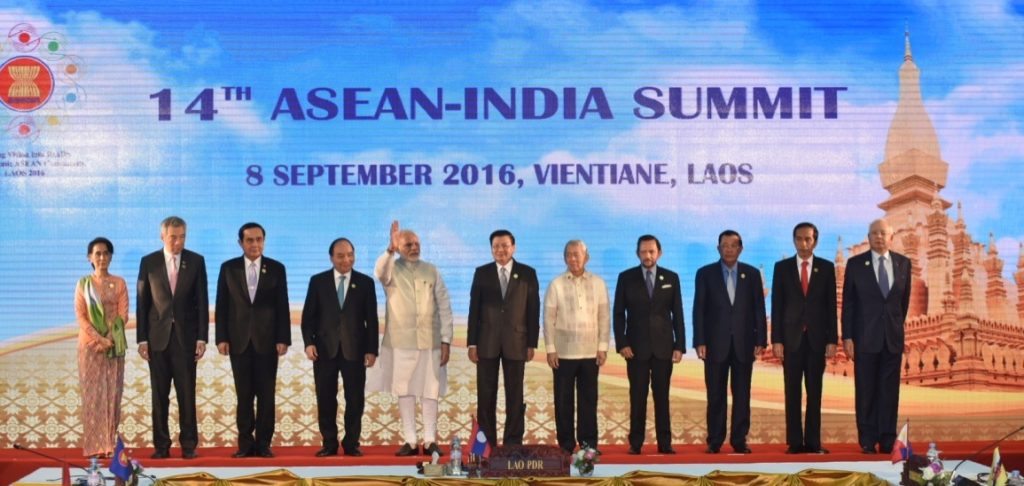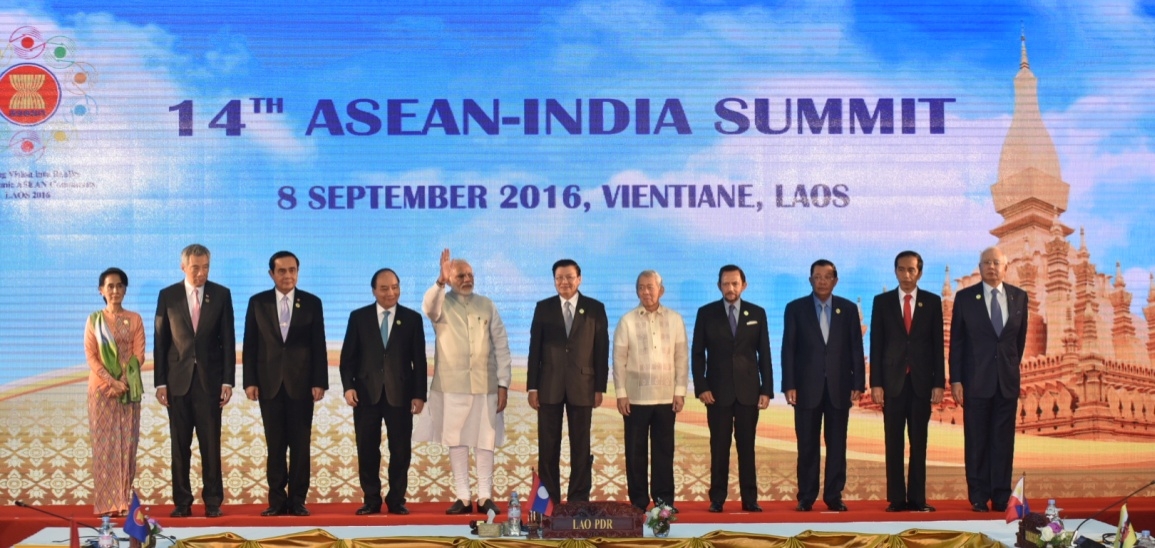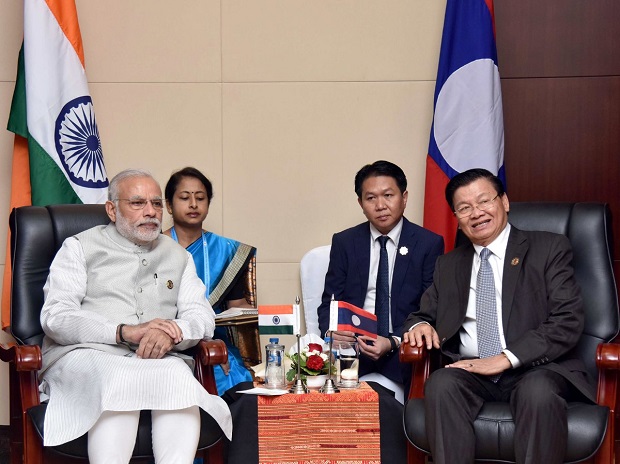

Prime Minister Narendra Modi expressed deep concern over the rising “export of terror”, in an apparent reference to Pakistan, saying it is a common security threat to the region and there was need for a coordinated response from the ASEAN members to combat the menace.
Mr. Modi, who was addressing the 14th ASEAN-India summit, noted that growing radicalism through the ideology of hatred and spread of extreme violence were the other security threats.
“Export of terror, growing radicalisation, and spread of extreme violence are common security threats to our societies,” he said in his second attack on Pakistan in two days amid escalating war of words between New Delhi and Islamabad.
He said, “The threat is local, regional, and transitional at the same time. Our partnership with ASEAN seeks to craft a response through coordination, cooperation at multiple levels.”
Stating that most countries in the South Asian region were pursuing a peaceful path to economic prosperity, he said: “But, there is one country in India’s neighborhood whose competitive advantage rests solely in producing and exporting terrorism.”
India-Pakistan relations have soured in recent times following the killing of Hizbul Mujahideen terrorist Burhan Wani in Jammu and Kashmir in July. Pakistan described Wani as a “martyr”.
Over 70 people have died in large-scale violence in the state since then.
Stating that terrorism was the most serious challenge to open and pluralistic societies, Modi called for collective efforts to combat the scourge.
The Prime Minister said that India remained committed, including through membership of export control regimes, to pursuing total and verifiable elimination of weapons of mass destruction.
Since its inception in 2005 — India is a founding member — the East Asia Summit has played a significant role in the strategic, geopolitical and economic evolution of East Asia.
“India will remain steadfast in the shared pursuit of regional, strategic political and economic priorities within the East Asia Summit framework,” Modi said.
Elaborating on India’s principled stand on the South China Sea issue, he said that the lanes of communication passing through the sea were “main arteries of global merchandise trade”.
“India supports freedom of navigation, over flight, and unimpeded commerce, based on the principles of international law, as noted in the 1982 United Nations Convention on the Law of the Sea (Unclos),” the Prime Minister said.
China is involved in disputes with littoral countries of the region over the South China Sea particularly over the Spratly and Paracel groups of islands.
While the Philippines welcomed it, China reacted angrily calling it null and void with no binding force and that “China neither accepts it nor recognises it”.
In the face of growing traditional and non-traditional challenges, political cooperation has emerged as key in relations. “We are willing to take concrete steps to enhance cooperation in cyber security, deradicalisation and counterterrorism,” he said.
He said enhancing connectivity was central to India’s partnership with ASEAN. “Seamless digital connectivity between India and Southeast Asia is a shared objective. India committed to Master Plan on ASEAN Connectivity,” he said.
Securing the seas was a shared responsibility. Sea lanes are “life lines of global trade.” India supports freedom of navigation based on United Nations Convention on the Law of the Sea (UNCLOS), he said. He thanked the member- countries for sharing their views on “nature, direction and priorities of our engagement.”
“All three pillars of our partnership — security, economic and socio-cultural have registered good progress. Engagement of India-ASEAN is of economic optimism. We continue to expand and deepen our economic engagements,” Mr. Modi said.
Modi said that India believed “that the threat or use of force to resolve disputes would complicate matters affecting peace and stability”.
“As a state party to the UNCLOS (United Nations Convention on the Law of the Sea) , India urges all parties to show utmost respect for the UNCLOS,” he said.
Stating that the countries have to be mindful of common security challenges, he said India would organise the second East Asia Conference on maritime security and cooperation later this year.
“We can share experience and build partnerships for protection of marine resources, prevent environment degradation and tap blue economy,” the Prime Minister.
Dwelling on the issue of disaster management, he said that India would host an East Asia conference on disaster management and emergency response and the Asian ministerial meeting on disaster risk response later this year and has established an East Asia virtual knowledge portal on disaster management.
Earlier on, speaking at the 14th India-Asean Summit here, he said Asean was central to India’s Act East Policy while describing the ties with southeast Asia as a “source of harmony”.
He said enhancing connectivity was central to India’s partnership with Asean.
In this connection, Modi proposed a joint task force on connectivity to work on extension of the India-Myanmar-Thailand trilateral highway to Cambodia, Laos and Vietnam.
Stating that cooperation in science and technology was a crucial element of India-Asean developmental engagement, he proposed to enhance the Asean-India Fund with an additional grant of $50 million.
He also invited Asean to be the guest of honour at the International Buddhist Conclave to be held in India in October.

Laos Prime Minister Thongloun Sisoulith complimented India’s Act East policy and its contribution to ASEAN, and hoped the summit will provide the future direction.
